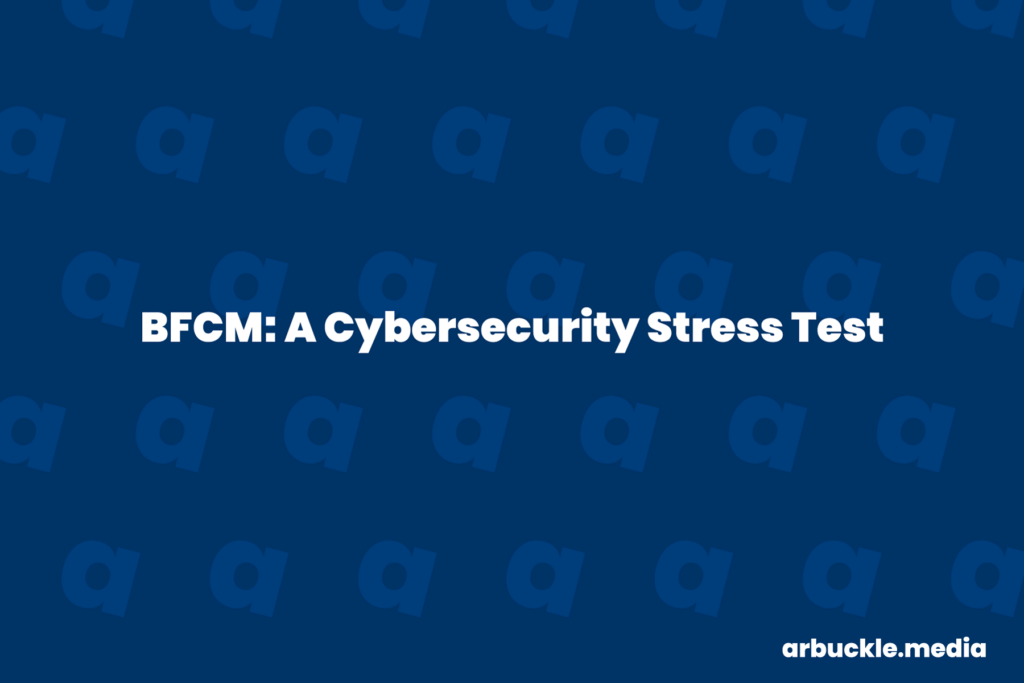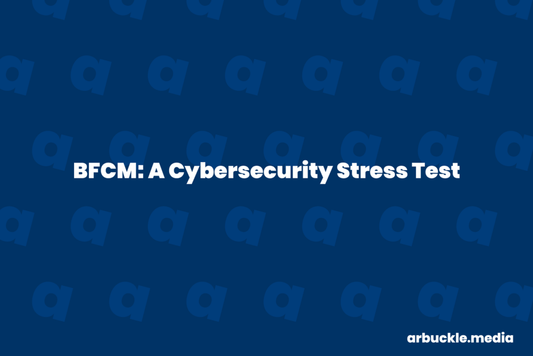We’re all accustomed to a rise in digital marketing activities, deals, and online shopping, we’re also seeing spam subscribes, login attempts, credit card fraud, and more at an all-time high this week, and it affects more than marketing departments. Marketers should also be talking about the increase in spam, phishing and other cybersecurity threats around Black Friday and Cyber Monday.

Why are small businesses and e-commerce sites targeted so frequently?
E-commerce is especially vulnerable and under fire because of its proximity to your customers’ personal financial information. Hackers and bad actors know that unfortunately, for many small businesses, cybersecurity is still an afterthought. There are now more websites than ever, and attackers know that this means there are a substantial number of soft targets out there, waiting for them. More than $100 million USD in digital ransoms were paid in 2021 alone, and reports of ransomware attacks were up 105% year-over-year last year.
Often those who are attacked (especially small businesses) think they aren’t of interest to bad actors. 43% of cyberattacks target small businesses, and that trend seems to be increasing year-over-year. Any information or records you have are valuable. Additionally, you could be a secondary target – a means to an end in order to better position an attack on a bigger fish.
What does a phishing scam look like?
Here’s an incredibly obvious example. I was NOT expecting an invoice from a dear contact of mine, Mr. “hdfh fdgff” (at least not today), so no, I won’t be opening this one. Nice try.

An important reminder to all, especially small businesses, that you don’t need to bother opening these, and simply clicking ‘report spam’ plays a small part in reducing the number of bad email accounts who can reach others (who might otherwise fall prey).

Don’t just delete it! Reporting bad emails and domains to Google helps the larger systems flag, block, blacklist, etc. email accounts and domain names that exist solely to attack or scam others.
So how do you protect yourself from e-commerce cybersecurity threats?
Use ReCAPTCHA, double opt-in, better password management, and 2fa or multi-factor authentication all year round. It’s times like BFCM that remind us how important this is, and what the shear VOLUME of malicious activity out there really looks like.
Sadly, many small businesses are not prepared – either proactively or after they’ve been attacked – they don’t have the resources or in-house expertise on what to do and how to recover. And some never do.
At risk of being attacked? Worried about phishing scams and leaving your e-commerce site vulnerable? Check out our Cybersecurity Essentials for Small Business E-commerce here to get started.




